Ched Evans: 10 big questions facing football
- Published
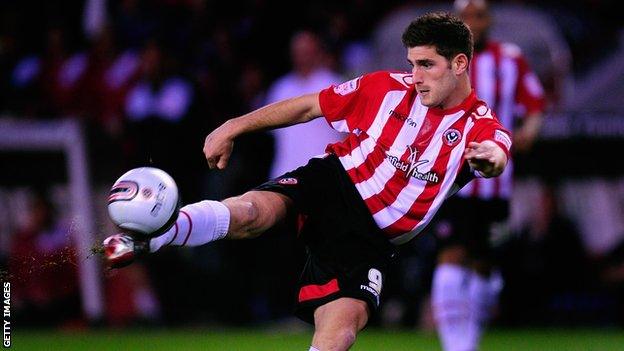
Will the FA change the rules to prevent Ched Evans and other convicted criminals returning to the sport?
Oldham Athletic's decision to pull out of a deal to sign convicted rapist Ched Evans ended a tumultuous few days of legal and moral arguments about the Wales striker's right to return to the game following his release from prison.
While this episode in the story is now at a close, the chapter is not over for football - with the game still left facing crucial questions.
What has this done to the image of English football?
The continuing debate surrounding Evans' future has not contributed anything positive to the overall image of English football, his former club Sheffield United or Oldham Athletic.
BBC sports editor Dan Roan followed the story as it developed and says: "No potential signing I can remember in recent times has done more damage to the reputations of the national game or stirred such emotions.
"For many critics, Oldham's attempt to sign a convicted rapist in the face of unprecedented opposition proved that football is out of touch with modern values. It strengthens the view held by many that football puts results on the pitch before principles, and of a profound disconnect between club boardrooms and the public at large.
"With its reputation for tribalism, football sadly already has a reputation for bringing out the worst in certain sections of society. The vile threats that Oldham say their staff were subject to only reinforced that view."
Has football as a whole misjudged public reaction?
There is plenty of evidence to suggest it has if Sheffield United seriously thought they could offer training facilities to Evans and Oldham Athletic attempt to sign him without believing it would create a corrosive reaction in many quarters.
Sheffield United's gesture was well-intended but naïve, while Oldham clearly felt they could ride against the rising tide of public opinion - to no avail.
And in the modern, commercially driven world of football - perhaps even more in the Football League where every penny counts - clubs showing an interest in Evans have also misjudged the mood of sponsors.
Dr Leah Donlan, lecturer in marketing at Manchester Business School, told BBC Sport: "Companies and brands seek to get involved in sponsoring football clubs for a variety of reasons, with three prominent ones being to enhance their image, to raise awareness and, particularly at low levels, to demonstrate a commitment to local communities.
"By sponsoring a football club, sponsors concede some control over their brand image to the club itself, as the way they are perceived becomes intertwined with the prevailing perceptions of the club.
"Based on these motivations, sponsors might threaten to withdraw their support for clubs who sign Ched Evans if they believe that the resulting image associations of the club do not fit with the way that they want their brand/company to be perceived."
Will the FA change the rules to prevent him playing?
The Football Association has admitted it was powerless to intervene in Evans' playing future.
But FA chairman Greg Dyke has hinted moves are now on the agenda to introduce a code of conduct or strict guidelines to be applied should similar cases arise in future in line with its review of public and private communications, as well as behaviour.
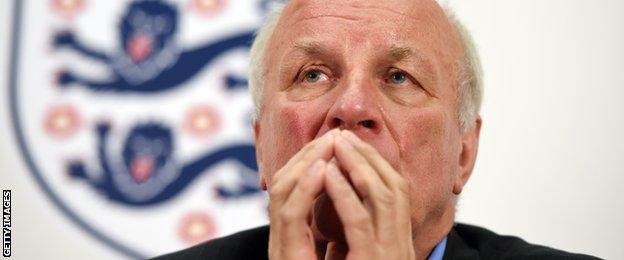
Greg Dyke says that the FA will be considering future guidelines in line with their ongoing review
Evans would be unable to return to certain professions as a convicted rapist and this is where it appears the FA is now preparing to tighten up its own jurisdiction.
BBC sports editor Dan Roan says: "Ultimately, it should be for the FA to dictate what crimes - if any - prevent a footballer from resuming their careers after serving their time. The statement by FA chairman Greg Dyke that rule changes may be forthcoming is a welcome admission that such a storm cannot be allowed to happen again.
"This week I saw an Oldham board director close to tears as he tried to make sense of the furore the club found itself in and the threats his staff were subject to. Never again can it be left to the clubs to make such an emotionally charged decision."
Are the PFA right to support Ched Evans?
Since Evans was released from prison, the PFA's stance is that it is supporting a member of its organisation who is now free to return to his employment.
When Sheffield United withdrew training facilities amid a public outcry the PFA stated: "We do not agree that society should impose different rules for footballers which go beyond the position of law."
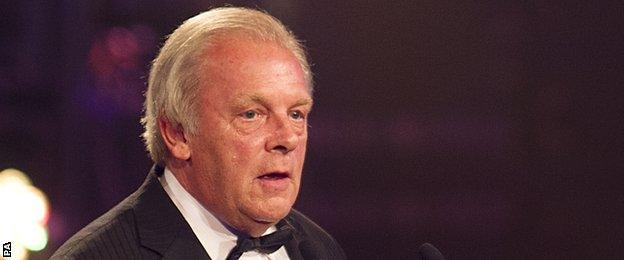
Gordon Taylor apologised after comparing the Hillsborough tragedy to the Ched Evans rape case
PFA chief executive Gordon Taylor has continued to be part of the supporting cast surrounding Evans - and whether it meets with public approval or not, the position adopted is one of a union backing one of its members.
But what about Gordon Taylor's Hillsborough comments? How will they affect his future?
Taylor has been forced to navigate the difficult journey between supporting a PFA member's attempt to return to employment in the game, while ensuring he did not do anything to offend sections of public opinion or in any way appear to be an apologist for Evans.
One of the game's most experienced and high-profile administrators - he has run the PFA since 1981 - he appeared to have done this successfully until he linked the Evans case with the Hillsborough disaster in 1989.
No-one with any knowledge of Taylor would suggest these words were designed to cause offence. This appeared more a case of ill-judgement as opposed to malice, words for which he swiftly apologised but words that carried even more resonance as the Hillsborough inquests continue.
Ian Prior, head of sport at the Guardian and Observer, told BBC Radio 5 live: "It betrayed, at best, a tenuous grasp of reality, not to mention good taste."
Barry Devonside, who lost his son at Hillsborough, called Taylor "foolhardy", adding: "He really needs to connect brain with mouth."
The return of Evans to the game and the nation's consciousness has thrust Taylor firmly into the spotlight - but it is unlikely that verbal slip will have any impact on his job at the PFA.
The Football League will decide on his registration - where do they stand?
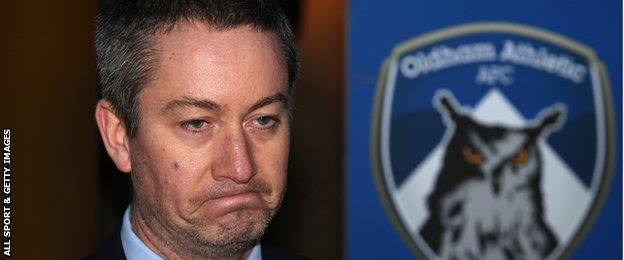
Oldham Athletic pulled out of signing Ched Evans following threats to the club's "staff and their families"
When Sheffield United agreed to allow Evans to train with them - an offer swiftly retracted after they said reaction to the decision "was at an intensity that could not have been anticipated" - the Football League made its position clear in a statement. The situation remains unchanged.
The statement read: "Should the Football League receive a request from any of its member clubs to register the player, we will have no option but to accept it - assuming that all other aspects of the proposed registration are in order.
"Ultimately the choice of whether to engage a player that has been released from a custodial sentence will be one for individual clubs who, having ensured that the player has the required permission from the probation service to work in football, will have to make their own assessment of the potential consequences for their public reputation and business affairs, as well as the relationship they have with their own supporters."
The Football League added that at a meeting of their board earlier in the season, it considered the implications for football's reputation of clubs employing players following their release from prison.
The board has asked its independent directors to consider the matter further before reporting back to the board at a future meeting and then the clubs at an appropriate point.
Where can Ched Evans still play?
His career will be restricted to the United Kingdom as confirmed when a recent link to Hibernians of Malta was dismissed, not only by the club but more significantly by the Ministry Of Justice.
The Ministry explained that strict conditions imposed on sex offenders "effectively rules out working abroad".
A spokesperson said: "We are determined to have one of the toughest regimes in the world for managing sex offenders, to stop them re-offending and to protect victims.
"Probation officers must give permission for sex offenders on licence to take up new jobs and this includes ensuring they hold regular face-to-face meetings. This effectively rules out working abroad. The offenders will be subject to strict conditions such as exclusion zones, non-contact orders and having to attend sex offender treatment programmes."
Who will want to sign Ched Evans now?
Every time he has been linked with a return to football, the reaction towards the club involved has been incendiary.
Sheffield United quickly withdrew their offer to allow Evans to train, Hartlepool hastily backed away from manager Ronnie Moore's suggestion he would consider a deal, and Oldham come closest to completing a transfer.
It is naïve in the extreme to suggest clubs who have kept any potential interest secret so far would not have watched developments and taken note of the adverse reaction and publicity.
The Ched Evans survey |
|---|
BBC Sport contacted clubs in League One and Two for their stance on whether they would sign convicted rapist Ched Evans. |
Oldham owner Simon Corney revealed three Premier League managers had been in touch to offer support, while Hull City manager Steve Bruce (one of that three) questioned the conviction of Evans and said he should be allowed to play again.
BBC Sport contacted clubs in League One and Two for their stance on whether they would sign Evans. Including Oldham, 12 clubs in League One ruled out the possibility of signing the former Wales international, while the remaining 36 either said they did not wish to comment or did not respond at all.
On this evidence, and given the events at Oldham this week, it would be appear only a brave, desperate or particularly thick-skinned club would now pursue a deal for the 26-year-old.
What happens next if another club tries to sign Ched Evans?
The reality suggests more of the same instant acrimony that engulfed Sheffield United and Oldham.
It is almost impossible to see how the situation would be any different, even though he has now apologised "for the effects" of his actions in 2011 while continuing to maintain his innocence over his rape conviction.
When the Blades considered an offer, shirt sponsors DBL Logistics threatened to end involvement with the club, while Olympic champion Jessica Ennis-Hill said she would want her name removed from a Bramall Lane stand should he sign. They weren't alone. More than 165,000 people signed a petition lobbying against a deal.
Oldham encountered a similar reaction, while a club director told BBC sports editor Dan Roan a staff member was informed a named relative would be raped if the deal went ahead.
Evans himself blamed "mob rule" and "the more radical elements of our society" for placing pressure on sponsors.
Is Ched Evans worth the trouble?
An international striker, available on a free transfer, only 26. Perfect for most clubs in the January transfer window - unless that striker is convicted rapist Ched Evans.
Evans started his career at Manchester City but could not break through, leaving after scoring one goal in 16 appearances, and signed for Sheffield United in a £3m deal in July 2009 after a loan spell at Norwich City.
The promise he had shown in spells was fulfilled at Bramall Lane, where he scored 42 goals in 113 appearances - a highly respectable record. He won 13 Wales caps, scoring one goal, but fell short of the standards required in the Premier League.
Instead, following his release from prison, his attempts to return to the game have failed amid such unrest, ill-feeling and emotion, and it is difficult to see where he will emerge next. Talented - but not, it seems, worth the baggage any attempt to sign him will bring.
- Published10 January 2015
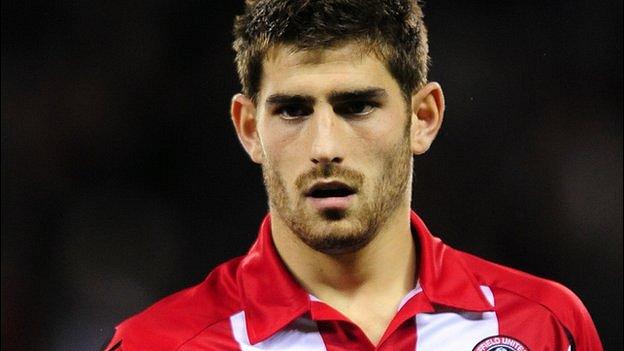
- Published8 January 2015
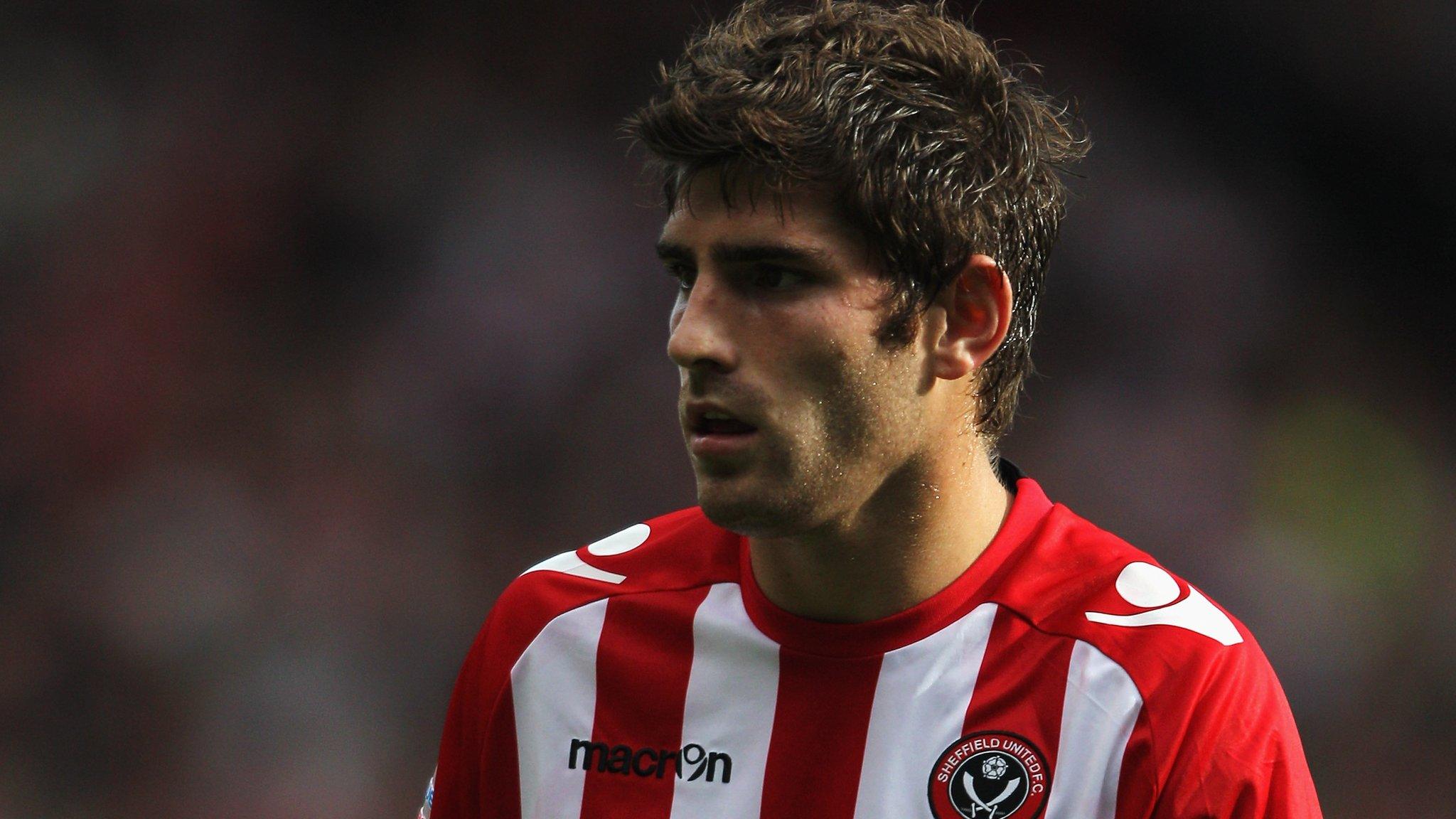
- Published8 January 2015
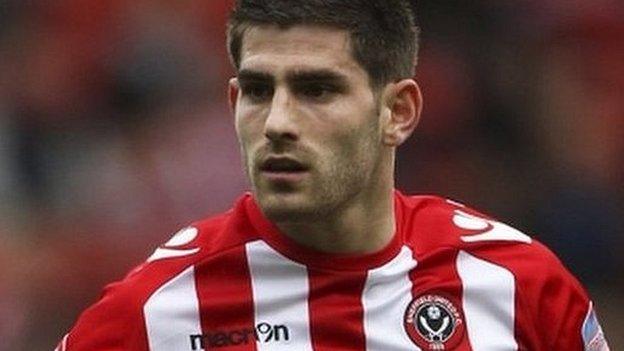
- Published20 June 2016

- Published7 June 2019

- Published2 November 2018
